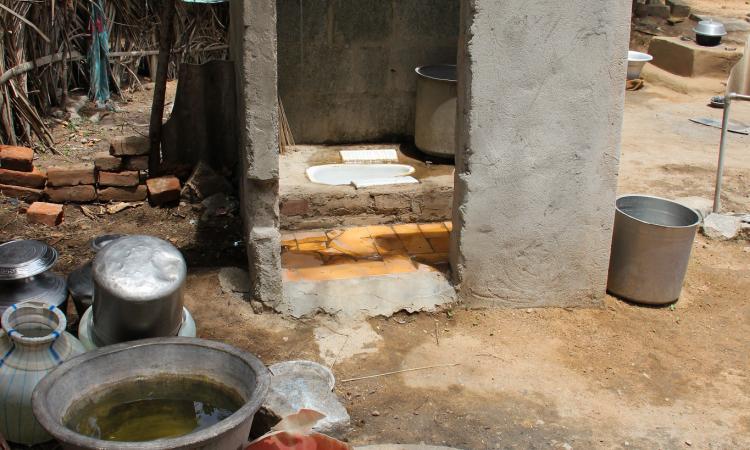
Prime minister’s review meeting instills urgency in Swachh Bharat implementation in rural areas
A detailed review of the Swachh Bharat Gramin’s functioning by the prime minister in June has instilled a renewed sense of urgency in the administrative quarters. Statistics reveal that the programme is most likely to miss the 2019 deadline. So far, just 17 out of the total 683 districts in the country have been declared open defecation free (ODF), comprising a meager 11 percent of the 6.38 lakh villages spread across India. The centre has decided to closely monitor 70 districts which have fallen behind in implementation, including some from Uttar Pradesh and Bihar, two of the worst performing states in the country. Sikkim is currently the only ODF state in the country.
Rameswaram-Manmadurai rail route is now India's first green corridor with zero toilet discharge on the tracks
The 114 km stretch between Rameswaram and Manamadurai in Tamil Nadu has become the first zero-discharge green rail corridor in the country. All trains plying in this section have been fitted with bio-toilets which use bacteria to degrade human excreta and keep the refuse from falling on the tracks. The bio-toilets have been developed for the Indian Railways by DRDO. The route between Okha and Kanalus Junction and the Porbandar-Wansjaliya stretch in Gujarat are expected to be transformed into zero-discharge corridors soon. Rameswaram has already been developed as a zero-discharge Green Station.
Kochi district to be declared open defecation free soon
The Kochi corporation along with 13 municipalities in Kochi district are just short of around 4000 toilets from being declared open defecation free. While many of the municipalities have submitted their project proposals to the District Planning Committee, six of them, including the Kochi corporation’s, are waiting for approval. Going by the recent statistics, Aluva municipality is leading the pack and will mostly be declared ODF before the rest.
Deonar experience holds the key to improvements in waste management across urban India
Fire outbreaks in Mumbai’s 90-year-old Deonar landfill have prompted action on a wide range of safeguards that include the setting up of water to energy plants and methane capture in dumpyards. The municipal corporation of Greater Mumbai has decided to set up a 2000 tonnes per day capacity waste to energy plant in Deonar in addition to asking expert organisations and think tanks to suggest measures to stabilise slopes in dumpyards to prevent accidents. Security has also been beefed up to monitor activities surrounding the yard. Similar steps are expected to be taken in cities elsewhere as well.
Lack of toilets force over five lakh residents of Delhi slums to defecate in the open
While the number of public toilets is abysmally low in most parts, the lack of proper maintenance of existing ones forces the slum dwellers of Delhi to defecate in the open. The national capital has around 100 slum settlements with very poor water supply and sanitation facilities. Most of these clusters are not connected to the existing sewerage lines, delaying the installation of temporary toilets further. The Delhi Urban Shelter Improvement Board (DUSIB) plans to construct around two lakh public latrines across the capital of which 1.5 lakh will be built in city slums over the next five years.
This is a roundup of important sanitation related news pubished between July 23 and 29, 2016.
Path Alias
/articles/renewed-sense-urgency-swachh-bharat-implementation